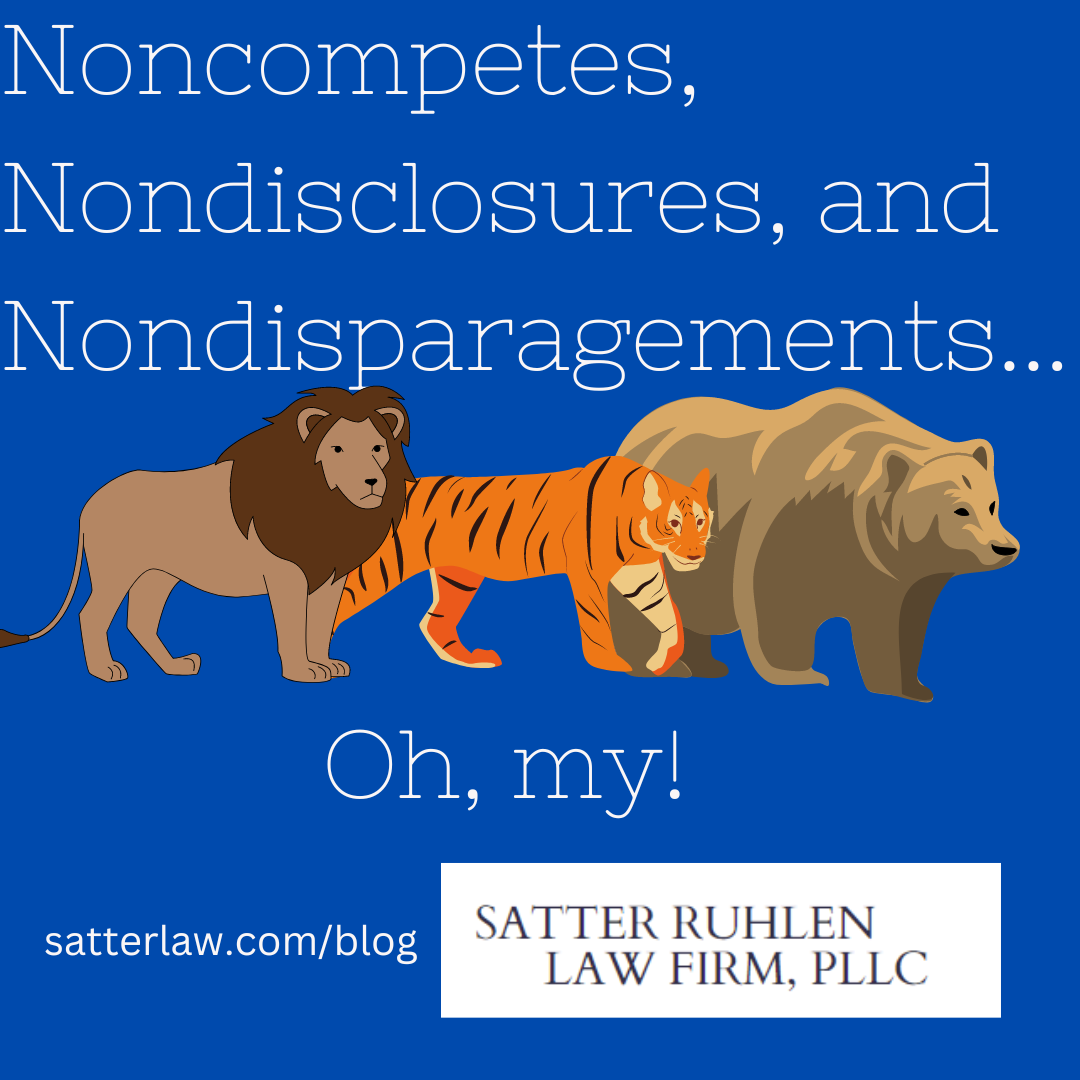
You may have been hearing a lot recently about “noncompetes,” “nondisparagement,” and “NDAs” (or “confidentiality”) agreements. [1] These are three types of restrictive covenants. Restrictive covenants are rules that employers impose on employees both during and after employment. The effects of restrictive covenants range from slightly annoying to totally unfair restriction on an employee’s ability to make a living.
Several states, including New York, are on the brink of passing legislation banning noncompete clauses – talk to a lawyer in your state to find out whether you have state protections against those clauses.
Additionally, the Federal Trade Commission (FTC) is in the process of creating a rule that would ban noncompete clauses. The Chamber of Commerce and other employer backed organizations are protesting the rule and even threatening to sue the FTC even though the notice and comment period is still open. The FTC considers noncompete clauses (not surprisingly) impediments to competition, and wants to ban them because they “block workers from freely switching jobs, depriving them of higher wages and better working conditions, and depriving business of a talent pool that they need to build and expand,” says FTC Chair Lina Khan.
Recently, the National Labor Relations board (NLRB) ruled that some types of confidentiality and nondisparagement provisions interfere with former employees’ Section 7 rights. Confidentiality agreements could prevent former employees from discussing terms and conditions of work, such as wages. Those types of discussions are essential for union organizing. Likewise, nondisparagement clauses could prevent former employees from having important conversations with each other about unsafe or unfair working conditions, which are also protected by the National Labor Relations Act.[2]
Employees should always consult with their union representative or a workplace attorney when they are presented with anything that the employer wants them to sign. But with the law changing how employers can use non competes confidentiality and non disparagement clauses, it’s more important than ever to get good legal advice. Always consult with an attorney before signing an agreement at work!
[1] Confidentiality agreements are also known as nondisclosure agreements or NDAs.
[2] This is not the first time that the NLRB has concluded that restricting former employees speech is illegal; this analysis had a brief heyday under the Obama administration as well.

